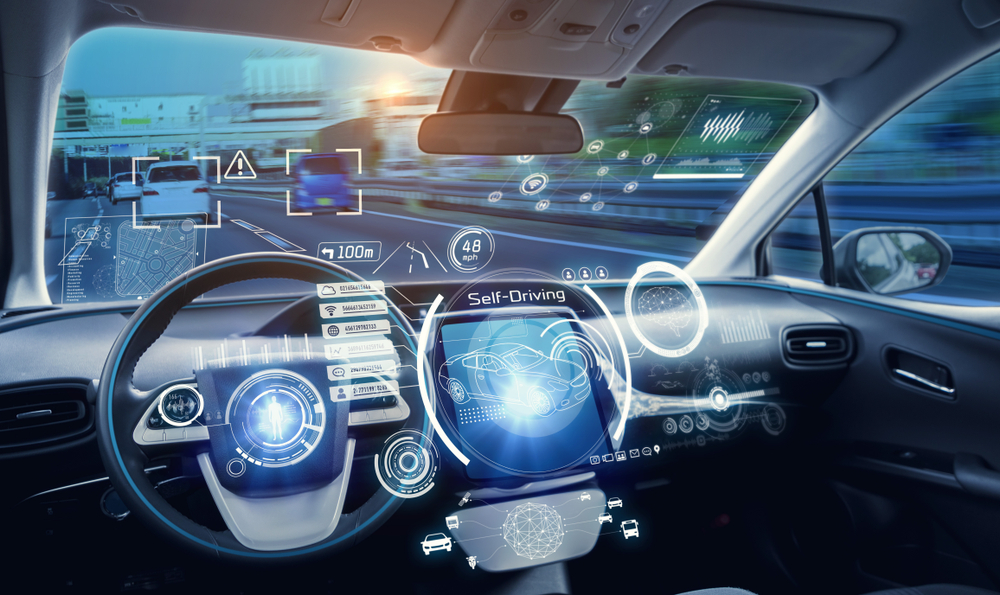Bloomberg’s recent report, Smart Cars Have Arrived, provides an in-depth look at the rapid advancements in the smart vehicles industry.
With a predicted revenue opportunity of $742 billion each year by 2039, the report highlights how Artificial Intelligence [AI] and connectivity are transforming the automotive sector, redefining vehicle functionality and altering business models, supply chains and consumer expectations.
The transformation of the automotive business model
The move towards smart vehicles has sparked a change in how automakers operate, with traditional manufacturers evolving into tech-driven companies, integrating software and AI-powered systems into their vehicles.
Chips and semiconductors are now just as essential as engines and powertrains, and it’s predicted they will make up over 20 per cent of premium vehicles’ bill of materials by 2030.
This trend indicates a major shift from a hardware-centric industry to a software- driven ecosystem. Automakers are relying more heavily on over-the-air [OTA] updates, digital dashboards and AI-powered assistants to improve their user experiences, and companies that don’t adapt to this digital transformation are at risk of falling behind in an industry where technology is becoming the main differentiator.
The role of AI and autonomous systems in smart vehicles
One of the main takeaways from Bloomberg’s report is the growing reliance on AI in vehicle automation.
It’s expected that AI-driven smart cars will revolutionize mobility by improving driver assistance systems, optimizing energy efficiency and enhancing overall safety. The global electric vehicle market is expected to reach an estimated size of some 1.08 trillion U.S. dollars by 2028, with more companies continuing to invest in self-driving technology.
Major advancements in generative AI are also influencing autonomous driving. For instance, last year, UK-based company, Wayve, secured $1 billion in funding to advance AI-driven simulation training for self-driving vehicles. This highlights the industry’s focus on AI for future transport systems.
Despite rapid tech advancements, there are still regulatory and infrastructure challenges to overcome. For example, deploying AVs at scale will require extensive testing, government approvals and robust cybersecurity measures to prevent vulnerabilities in these highly connected systems.
Consumer adoption and market dynamics
There is a growing consumer demand for smart vehicles, especially among Electric Vehicle [EV] buyers. Bloomberg’s report highlights that 69 per cent of EV buyers plan to increase their use of connected vehicle solutions, compared to 47 per cent of traditional car buyers.
This shows more people are now looking for vehicles that offer enhanced connectivity, automation and digital services beyond traditional transport.
Geopolitical factors could also pose additional challenges to the sector’s growth. The introduction of tariffs on imports and potential changes to EV tax credits, for example, could make production more expensive and slow down smart vehicle adoption.
On the other hand, more lenient regulations on AI and autonomous vehicles could accelerate the deployment of new technologies, bringing both challenges and opportunities for automakers and tech companies.
The role of cybersecurity in smart vehicles
As vehicles become more and more connected, auto cybersecurity is becoming a priority that can no longer be ignored. The integration of AI, IoT sensors and cloud-based services has introduced new vulnerabilities that cybercriminals could exploit. Cyberattacks targeting vehicle systems could compromise safety, disrupt operations and put user data at risk.
Regulatory bodies have responded by introducing stringent cybersecurity mandates for the industry. The United Nations Economic Commission for Europe [UNECE] has brought in regulations like UNR155 and UNR156, which require manufacturers to put comprehensive cybersecurity management systems in place.
To comply with these regulations, manufacturers must continuously monitor and provide real-time updates while making a proactive effort to mitigate threats.
How can Trustonic help?
At Trustonic, we understand the vital need for cybersecurity solutions that protect the next generation of smart vehicles.
Our industry leading Trusted Execution Environment [TEE], Kinibi, provides OEMs with a robust foundation to build a wide range of secure applications and services across the vehicle architecture, making us a trusted partner for automotive manufacturers adapting to rapid digital transformation.
1. Secure platform integration
We provide robust security frameworks that seamlessly integrate with automotive systems, ensuring end-to-end protection for both hardware and software components. Our solutions prevent unauthorized access and protect vehicle functionality from potential cyber threats.
2. Compliance support
Global cybersecurity regulations can be complex, which is why Trustonic helps automakers comply with international standards such as UNR155 and UNR156. We do this by implementing tailored security protocols, reducing risks associated with regulatory non-compliance.
3. Data protection and privacy
With growing concerns over data privacy, our encryption and authentication mechanisms safeguard sensitive vehicle and user data. We provide security solutions that protect in-car communications, preventing unauthorized access to personal and operational data.
4. Real-time threat detection & over-the-air updates
Our solutions can integrate with partners to enable continuous security monitoring and OTA update capabilities, allowing manufacturers to identify and mitigate threats in real time. This proactive approach ensures smart vehicles remain secure against evolving cyber threats.
The future is smart
The future of smart vehicles is rapidly unfolding, with AI, connectivity and automation changing the automotive industry as we know it.
Bloomberg’s report highlights the huge opportunities ahead but also reinforces the vital role cybersecurity will play in ensuring the safety, reliability and privacy of these vehicles.
As the industry embraces digital transformation, cybersecurity needs to remain a top priority. Trustonic is committed to providing cutting-edge security solutions that empower automakers to build resilient, secure and future-ready smart vehicles.
Get in touch today to find out how, by partnering with us, you can confidently drive innovation while safeguarding the trust of your customers today, tomorrow and beyond.

